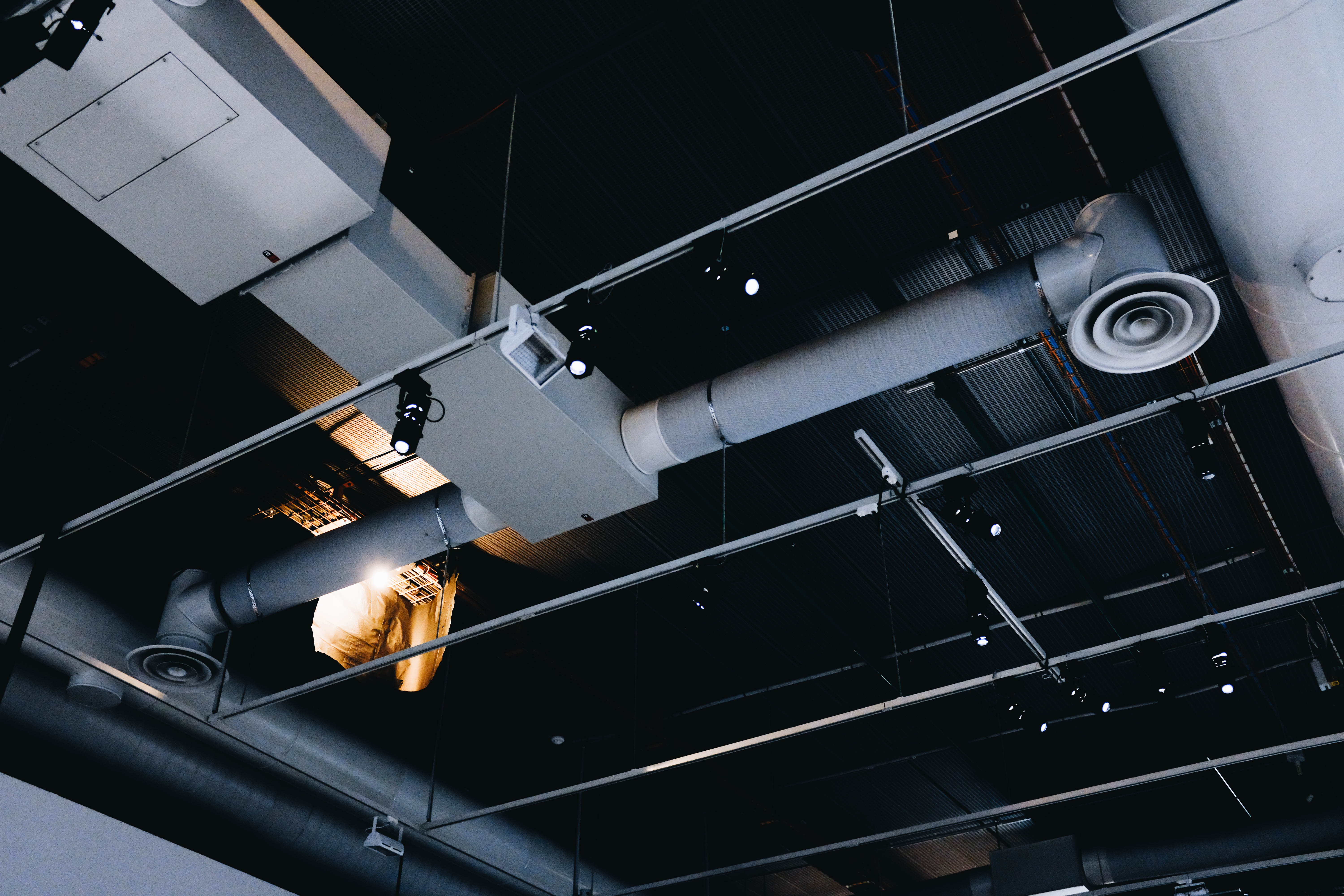What Is an Industrial Humidifier and Why Is It Important?

If you’re managing a large facility, you know how crucial air quality can be. An industrial humidifier isn’t just a bigger version of what you’d use at home—it’s a key piece of equipment that influences everything from product quality to employee well-being. When you start to consider the risks of uncontrolled humidity, you’ll see why these systems matter more than you might think.
Definition and Core Functions of Industrial Humidifiers
An industrial humidifier is a device designed to maintain appropriate humidity levels in large-scale environments such as factories, warehouses, and laboratories. In these settings, controlling humidity is essential to protect materials, prevent equipment malfunctions, and ensure a safe working environment.
The system operates by releasing fine mist or steam to increase moisture levels in the air efficiently, minimizing water usage. This process helps to reduce airborne dust particles, mitigate static electricity, and improve air quality for personnel.
Consistent humidity levels also play a critical role in preserving sensitive materials and machinery. Across industries like textiles, food processing, and healthcare, industrial humidifiers contribute significantly to maintaining operational efficiency and product integrity.
Modern industrial humidification systems provide precise control over moisture levels while offering energy efficiency and reduced maintenance requirements compared to older technologies.
Primary Differences Between Industrial and Commercial Humidifiers
Industrial humidifiers differ from commercial humidifiers primarily in their scale and application.
Industrial units are designed for large, demanding environments such as manufacturing facilities or data centers, where they deliver high-capacity humidity control to maintain consistent conditions.
Commercial humidifiers, on the other hand, are suited for smaller spaces like offices or retail stores, focusing on basic humidity management for occupant comfort.
Another distinction lies in maintenance needs.
Industrial humidifiers, engineered for continuous operation and durability, often require regular and detailed maintenance to ensure optimal performance.
In contrast, commercial units typically need less frequent servicing.
Additionally, industrial humidifiers play a critical role in protecting sensitive equipment and processes, beyond just maintaining comfort, making them vital in specialized sectors.
Key Technologies Used in Industrial Humidification
Industrial humidifiers are designed to operate in challenging environments, relying on advanced technologies to ensure precise and consistent humidity control.
Common systems include evaporative, atomizing, and misting technologies, each engineered to maintain appropriate humidity levels effectively. High-pressure systems employ specialized nozzles and pumps to produce a fine mist, while steam-based systems generate humidity by heating water.
Ultrasonic humidifiers create micro-droplets through high-frequency sound waves, reducing water usage. Smart fog systems are designed to produce smaller droplets that evaporate before settling on surfaces, preventing excess moisture accumulation.
Additionally, customized solutions can be developed to meet specific industrial humidity requirements.
Health and Safety Benefits in the Workplace
Industrial humidifiers play a significant role in enhancing workplace health and safety by maintaining appropriate humidity levels. Controlled humidity helps create a healthier environment for employees by reducing the transmission of airborne viruses, minimizing skin irritation, and decreasing dust levels, which in turn supports respiratory health.
Additionally, it can lessen the occurrence of allergy symptoms and improve overall comfort during working hours. These systems also mitigate static electricity, reducing the risk of electrical shocks, particularly in environments with sensitive equipment or flammable materials.
Static Electricity and Equipment Protection
In industrial environments, low humidity can lead to the accumulation of static electricity, posing risks to both worker safety and equipment reliability. Insufficient moisture in the air increases the likelihood of static buildup, which can cause minor shocks to personnel and create significant hazards in areas with flammable materials.
Additionally, electronic equipment is susceptible to damage from electrostatic discharge, potentially leading to malfunctions or data loss. Maintaining humidity levels between 30-60% through the use of commercial humidifiers can effectively mitigate these risks.
Proper humidity control helps safeguard sensitive machinery, reduces the need for repairs, and contributes to a safer workplace.
Impact on Product Quality and Manufacturing Processes
Maintaining appropriate humidity levels is essential for ensuring product quality and optimizing manufacturing processes. Industrial humidifiers help meet specific humidity requirements, mitigating issues such as static electricity and product defects.
For instance, in textile manufacturing, controlled humidity prevents cotton fibers from becoming brittle or clumping, thereby maintaining consistent quality. Additionally, proper humidification reduces airborne particles, which can extend the lifespan of equipment and minimize operational downtime.
In food production, adequate humidity levels help preserve freshness and prevent spoilage, ensuring products meet quality standards. Similarly, in environments like data centers, regulated humidity protects sensitive equipment, contributing to operational reliability and consistent manufacturing outcomes.
Typical Applications Across Different Industries
Industrial humidifiers play a significant role in enhancing product quality and operational reliability across various sectors.
In healthcare, they help maintain specific moisture levels to minimize the transmission of viruses and ensure safer conditions for patients.
In the food processing industry, these devices contribute to preserving product freshness and preventing spoilage.
Data centers depend on controlled humidity to reduce static electricity and support optimal performance of sensitive equipment.
Similarly, the textile industry relies on consistent humidity levels to protect fibers and achieve uniform production outcomes.
Across these diverse fields, humidity control is a critical factor in maintaining safety, efficiency, and the integrity of delicate processes.
Features and Customization Options for Industrial Use
Industrial environments often present challenges for maintaining proper climate control, but modern humidifiers are equipped with features to address these issues effectively.
Industrial humidifiers are designed for high-capacity performance, ensuring consistent humidity levels across large spaces. They offer customizable options that allow settings to be adjusted based on specific facility requirements, such as automated controls for minimal manual intervention or integration with existing HVAC systems.
Constructed with durable, heavy-duty materials, these units are suited for continuous operation in demanding conditions. Additionally, advanced control systems provide accurate moisture regulation, supporting operational efficiency by reducing the need for frequent adjustments and minimizing energy consumption in industrial settings.
Selecting the Right Industrial Humidifier for Your Facility
With a solid grasp of the features and customization options in modern humidifiers, you can proceed to select the appropriate unit for your facility.
Begin by determining the specific humidity levels required for your industrial environment, as different settings have distinct needs for optimal operation. Assess the coverage area and capacity of the humidifier to ensure it matches the size and demands of your space, particularly in larger facilities.
Consider the benefits of advanced control systems, such as automation, which can enhance efficiency and reduce the need for manual adjustments.
Compare the available technologies—evaporative, atomizing, or steam—and evaluate their maintenance requirements to find the best fit.
Lastly, verify that the chosen humidifier is compatible with your existing HVAC system to ensure seamless integration and reliable performance.
Conclusion
When you choose the right industrial humidifier, you're not just controlling moisture—you're protecting valuable equipment, improving air quality, and ensuring consistent product quality. By understanding the technologies, features, and specific needs of your facility, you'll create a safer, healthier, and more efficient workplace. Whether you’re preventing static, safeguarding materials, or supporting your employees’ well-being, industrial humidifiers play a crucial role in keeping your operations running smoothly across any industry.
